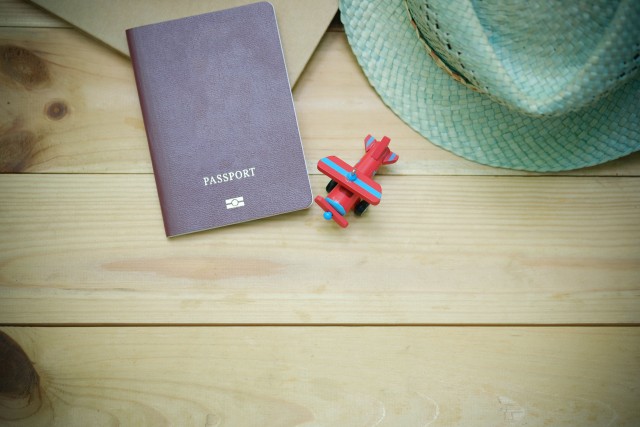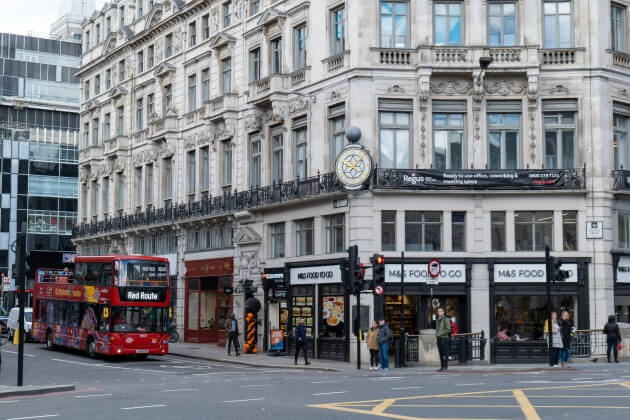Advertisement
We will show you the necessary requirements you need on how to apply for a UK student visa and get it successfully.
You might be wondering what kind of documents are needed to get the visa? How long will the visa last? How much for everything? Don’t worry! Just take a breather and calmly take your time to read through the contents of this post.

We got you covered on any questions you have today on how to apply for a UK student visa and get it successfully, of course.
Alright, we move!
Advertisement
Applying For Your Uk Student Visa
If you’re 16 years old or above and considering enrolling in an education course in the United Kingdom that extends beyond six months, you will likely need to apply for a student visa through the Student Route.
The cost for this visa is £490 per individual. If you prefer a service such as priority or super priority, there will be charges.
You are eligible to request a Student visa for studying in the UK if you’re 16 years old or older and meet the criteria;
- You have received an offer from an authorized student sponsor for your chosen course.
- You possess funds to support yourself and cover your course expenses. The amount to required may differ depending on your circumstances.
- You have proficiency in English language skills, including speaking, reading, writing and comprehension.
If you are aged 16 or 17 years old it is necessary to obtain consent from your parents as supported by evidence during the application process.
In case you intend to study at a school in the UK at ages 16 or 17, it is possible that you may qualify for a Child Student visa which has replaced the Tier 4 (General) student visa.
The timing of your application depends on where you’re applying from, within or outside of the UK
How To Apply For a Uk Student Visa Online
Follow the following steps on how to apply for a UK student visa:
Step 1: Start By Applying To The University Or Universities Of Your Choice And Patiently Wait For An Offer
If you’re applying from outside the UK, keep in mind that you can begin your application process as six months before your intended course start date.
Applying from Outside UK:
- If you are applying from outside the UK, you have the option to submit your application up to 6 months prior to the start of your course.
- Typically a decision regarding your visa will be made within 3 weeks.
Applying from the UK:
- For the applicants who are in the UK, you can start the application process between 2 to 3 weeks before your course commences.
- Make it such that you apply before your current visa ends, and also confirm if the new course starts less than 28 days after the expiry of your previous visa.
- Normally the maximum time is eight weeks to reach a decision.
- Decisions are usually made within 8 weeks.
Step 2: Acquire Your Certificate Of Acceptance Of Studies (CAS)
Upon receiving an offer letter, your university will issue you a Certificate of Acceptance of Studies (CAS). Please be informed that this document has a cost of £25.
The necessary documents for applying for a UK Student Visa include;
1. You are required to have a valid travel passport or any other recognized travel document.
2. A Confirmation of Acceptance for Studies (CAS) from your course provider.
3. Proof of funds to support yourself and cover the cost of your course (requirements may vary depending on circumstances).
4. An ATAS certificate if it is required by both your course and nationality.
5. Evidence of legal guardian consent if you are below 18 years old.
6. Proof of your relationship with your parent or guardian if you are below 18 years old.
7. Results of your tuberculosis test.
8. If you have been sponsored for your course fees and living costs within the 12 months, please ensure that you obtain written consent from your sponsor to support your application.
More documents may be required depending on what is involved. Please consult the provided guidelines for a list of requirements.
Make sure you have a page in your passport for visa purposes if you are required to provide biometric information (such as fingerprints and a photograph) at a visa application center. If it is necessary in your case, you will be notified when you submit your application.
- For applicants who’re under 18 years old, it is essential to obtain written consent from both parents or legal guardians (or from one parent if they have responsibility). This consent should cover the following areas;
- Visa application
- Living arrangements and care plans while in the UK
- Travel arrangements to and within the UK
- Please include a copy of your birth certificate or any other government issued document that displays your parents names.
Step 3: Begin The Student Visa Application Process
To apply for a Student visa, please visit either your country’s embassy or their online portal. You will find information about the required documents for the application process.
Once you have received your Confirmation of Acceptance for Studies (CAS), you can initiate the student visa application process. It is possible to apply for your visa up to six months to the start date of your course. Additionally, ensure that you have a passport and be prepared to pay an application fee (£490, for students).
During this process there are two options:
- Providing information (fingerprints and photo) at a designated visa application center.
or
- If you are a citizen of an EU country, Iceland, Liechtenstein, Norway or Switzerland, you have the option to utilize the UK Immigration; ID Check app on your device to complete the identity verification section of your application. You can create a UK Visas and Immigration (UKVI) account or log into your existing one.
After Applying
After submitting your application, there is a possibility that you may receive instructions or experience delays if additional steps are required. Situations might arise when you have to follow certain required steps.
These can include checking supporting papers, going for an interview, or dealing with personal situations like past criminal records.
If you need to alter your application after you’ve sent it, touch base with UK Visas and Immigration (UKVI). Keep in mind, you’re only eligible for a refund if UKVI hasn’t started working on your application yet. Choosing to pull back your application? You may ask UKVI to do so too.
Once they’ve reached a decision and your application is successful, you’ll get either:
- a biometric residence permit – But only if you gave your biometric details at a visa application center in your home country’s embassy.
or
- a digital immigration status that you can see and show online – if only you had make used of the ‘UK Immigration: ID Check’ app to register.
Step 4: Calculate The Costs And Make Sure To Pay The Immigration Health Surcharge (IHS)
Planning to stay in the UK for longer than six months? You’ll need to factor in a fee. Add the Immigration Health Surcharge (IHS) to your application costs.
This covers a student visa, costing £470 for every UK year. Over one year plans have a different price. You’re looking at £235 for 1-6 months and £470 for 6-12 months. If you are think about doing a masters and staying for 12 months? You’ll face a £705 fee in total.
Just remember, your specific authorized stay may change the precise amount. To check, use the fee calculator on the UK Visas and Immigration (UKVI) site.
European students, see if you own a European Health Insurance Card (EHIC). You might get an IHS refund. The GOV.UK site can help you find out if you qualify.
Paid part-time work could influence your refund eligibility when you study in the UK. So, think about this before you apply.
Step 5: Demonstrate Your Proficiency For English Language If Required
To apply for your student visa, you might have to show your English speaking and understanding skills. Check your university’s rules to see the kind of proof they need.
Step 6: Complete And Get Your Application Accepted Before Arriving In The Uk
Complete and send your application before you get to the UK.
What You Should Know
If you wish to extend your stay:
- You could extend your visa if you qualify, especially if you want to keep studying.
- Already in the UK using a different visa? You can switch to a Student visa.
- Another choice is opting for a Graduate visa which allows staying in the UK for 2 years after completing your course.
For traveling arrangements:
1. It is permissible to arrive up to 1 week if your course duration is 6 months or less.
2. You should make sure not to travel before the start date mentioned on your visa, which’s usually, up to 1 month before if your course lasts longer than 6 months.
3. Ensure not to travel before the start date on your visa.
Costs for the application process:
1. Applying for a Student visa from outside the UK incurs a fee of £490.
2. The same fee is applicable for extending or switching to a Student visa from within the UK.
3. Everyone traveling with you must cover their visa cost.
Healthcare surcharge
Furthermore, a healthcare charge is necessary. Its total depends on your visa’s length. Please verify the healthcare cost before applying.
Your partner and children
If relevant, you can take along your spouse and offspring (dependents).
What you Should do and should not do
Particular activities are allowed with a Student visa. These are:
- studying,
- and working as a student union officer.
But some limits exist such as not:
- claiming public funds,
- Holding a job,
- and being self-employed or attending certain institutions.
Once approved, you’ll be told what’s OK and not OK with your Student visa.
Frequently Asked Questions On How To Apply for A UK student visa
How long can you stay in the UK?
If you’re 18 or older, and studying a degree level course, you can usually stay up to 5 years. For lower level courses, stays are typically 2 years. To get information about the duration of your stay, make sure to consult the provided guidelines.
Can I Work using a Student Visa in the UK?
Many UK students balance part-time jobs with their studies. Commonly, a 20-hour working week is the limit during school terms. But, don’t forget to check your visa status, biometric residence permit, and university rules first. It’s important to see if there are any restrictions on the kind or quantity of work you can do.
If you’re studying in the UK and thinking about part-time work, be aware. It might affect your Immigration Health Surcharge refund eligibility. The UKCISA website provides detailed information about acceptable hours and job types.
Can I Bring Dependents On A Student Visa?
UK Visas and Immigration updated their rules in October 2023. Some students can now bring family members with them to the UK. These students include those studying long courses. Government-sponsored students studying for 6 months or more, or students at degree-level studying for 9 months or more (like PhD students), are allowed. Also, students studying full time for 6 months or more can bring dependents.
There are some conditions though. Family members can apply but they must meet certain conditions. Also, students with government scholarships that cover all costs can bring family.
Want more info? Look at pages 95 and 96 of the UK Home Office Student and Child document.
Can I Stay In The UK After Graduation?
Your student visa is linked to your course duration. Keep track of your visa expiry for seamless planning.
If you’re eligible, you could extend your student visa or change to a different visa type for job hunting or more UK studies.
Learn more by visiting “after school” pages about your choices once your studies wrap up.
Advertisement






